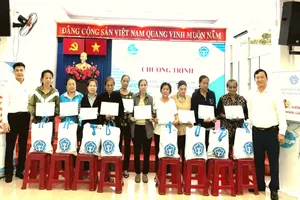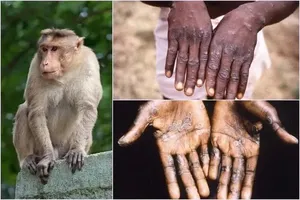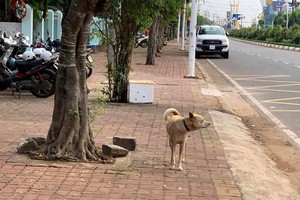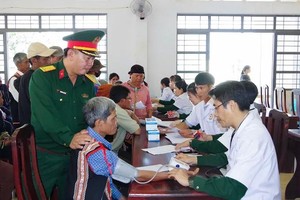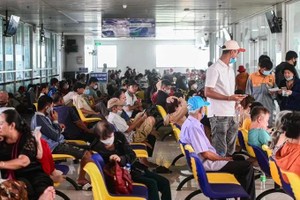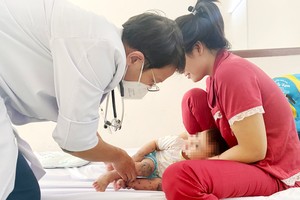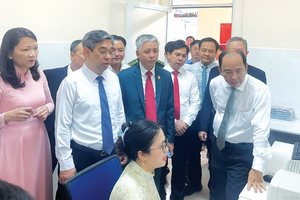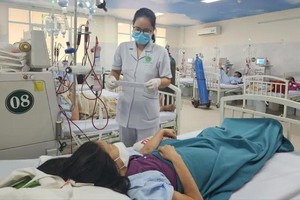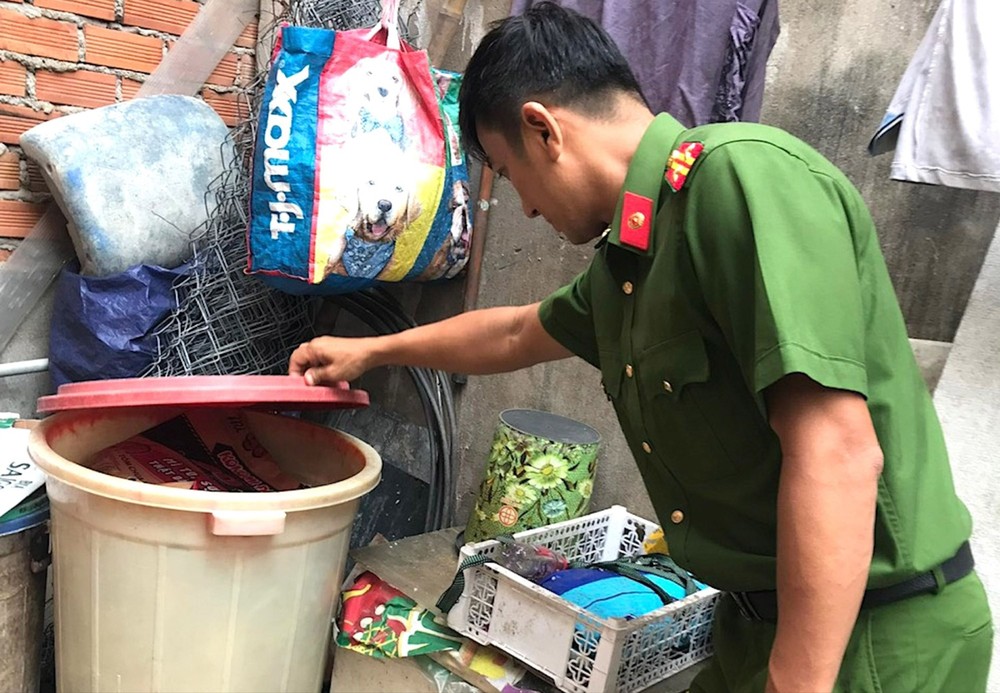
Last week, Ho Chi Minh City recorded 126 new cases of dengue fever (DHF). From the beginning of 2024 until June 30, there have been 4,040 cases of dengue fever, with no reported deaths. The districts with the highest number of cases per 100,000 residents are District 1, Binh Thanh District, and Thu Duc City.
At the same time, the city recorded 355 cases of hand, foot, and mouth disease (HFMD) last week, a 25-percent decrease compared to the average of the previous four weeks. The total number of HFMD cases from the beginning of the year until now is 7,383. District 8, Tan Binh District, Binh Chanh District, and Nha Be District have the highest incidence rates of HFMD per 100,000 residents.
The health authorities are determined to prevent outbreaks and are emphasizing disease control measures, environmental hygiene, and risk assessment. They are also taking strict action against organizations and individuals who fail to ensure proper sanitation to prevent infectious diseases.
In the first six months of the year, HCMC’s Binh Tan District has issued four decisions on administrative sanctions and 15 reminders to households and businesses that have not yet strictly implemented epidemic prevention and control measures. Vice Chairwoman of Binh Tan District People's Committee Le Thi Ngoc Dung said that thanks to the drastic participation of the authorities, most people are vigilant against DHF and malaria, so the number of new DHF cases in the area is decreasing every month.
However, the total number of inpatient and outpatient DHF cases accumulated from January 1 to June 30 is 785 cases, an increase of 35.3 percent compared to the same period in 2023 (785/580 cases). The district People's Committee has directed agencies to strengthen inspection and supervision of risk types according to the guidelines of the health sector. At the points in the district where larvae have been detected, the functional forces will re-check this place weekly.
If the staff of functional forces discovers that a venue still sees larvae, they will draw up a record and submit it to the ward People's Committee for strict punishment, said Ms. Le Thi Ngoc Dung.
Dr. Nguyen Trung Hoa, Director of Go Vap District Medical Center, said that the district has recorded 202 DHF cases, and 10 epidemic outbreaks in the past time; nine of them have been under control.
He pointed out that the culprit of the disease outbreaks is the high population density and large fluctuations, leading to an increased risk of disease transmission. The Go Vap District People's Committee has directed 16 ward People's Committees to strengthen administrative sanctions against individuals and organizations that deliberately increase the risk of disease transmission in the community.
Vice Chairman of District 12 People's Committee Vo Thi Chinh said that the number of DHF cases in the district has decreased by nearly 40 percent compared to the same period. It is forecast that in the coming time, the number of DHF cases will tend to increase because it is the peak of the rainy season. District 12 aims to strive to 100 percent of DHF outbreaks are investigated and handled promptly; At the same time, the local administration has built a DHF surveillance system from residential quarters to schools, and business establishments to localize and handle outbreaks promptly, not to let them spread widely.
In addition, District 12 continues to strengthen inspection, supervision and handling of risk points, thoroughly handle outbreaks; and promote mass communication activities for people to respond and implement.
Outlying districts such as Binh Chanh, Cu Chi, Hoc Mon, and Nha Be have also drastically strengthened measures to prevent and control DHF and malaria. For instance, Binh Chanh District has issued 9 decisions on administrative sanctions to organizations and individuals who do not strictly implement epidemic prevention and control measures according to the Government’s Decree No. 117/2020/ND-CP.
Vice Chairwoman Duong Thi Thuy Trang of the People's Committee in Binh Chanh District’s Vinh Loc A Commune informed that the commune administration has issued 2 decisions on administrative sanctions in the field of medicine against two households that did not implement measures to ensure hygiene in their homes and places of domestic waste storage to prevent infectious diseases. Simultaneously, the district government has issued five reminders to households and businesses that have not yet strictly implemented epidemic prevention and control measures.
Vice Chairwoman Nguyen Thi Hang of Cu Chi District People's Committee disclosed that as of the end of June 2024, the district has recorded 87 DHF cases, 308 malaria cases, and no deaths. In early May, the number of malaria cases increased, and the district's health sector coordinated with departments, communes, and towns to strengthen communication and handle outbreaks promptly. As of now, the number of cases has shown a downward trend. Cu Chi outlying district is closely coordinating with the Ho Chi Minh City Center for Disease Control to inspect and supervise disease prevention and control work in communes with an increase in DHF and malaria cases in Tan Phu Trung Commune, Binh My Commune and Trung An Commune.
Based on the course of the disease, the district has set up inspection teams who supervised communes and towns with an increase in infected cases and controlled cases and outbreaks in the communes.
The Ho Chi Minh City Department of Health calls on each person to proactively take measures to prevent DHF from now on to prevent the outbreak, including paying attention to the following activities by preventing mosquitoes from laying eggs (covering containers of domestic water) and collecting items that can accumulate water in and around the house, removing waste materials that can accumulate water.
Moreover, people should sleep under a mosquito net (even during the day) to prevent them from being bitten by mosquitoes, wearing long-sleeved clothes, using mosquito spray, mosquito incense, mosquito repellent, and electric mosquito swatter. Doctors advised people to go to a medical facility immediately for examination and treatment advice, do not self-care at home when they experience a fever.







